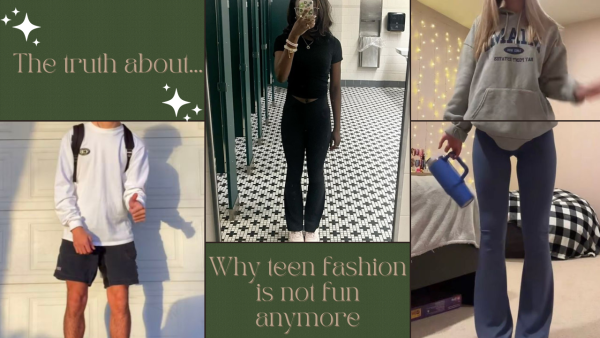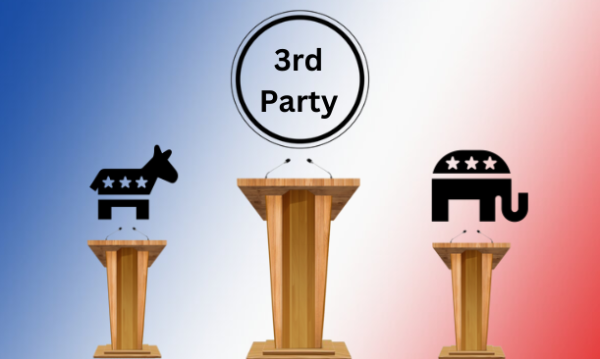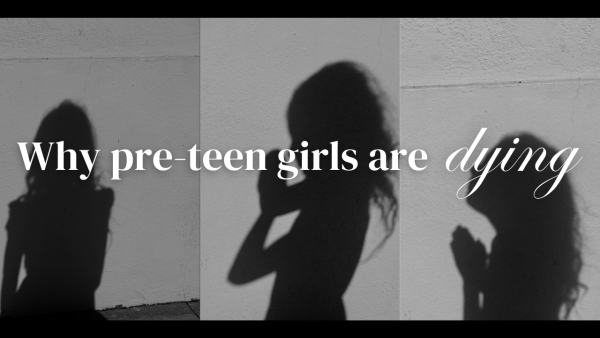Paying for the music makes it possible to have it
January 14, 2015
“Why would you pay for that when you can just download it online?”
As I picked up the physical CD, a once-cherished object that only seems to have appeal to a small percentage of the population now-a-days, I received a befuddled look from my friend.
Right. Why would I buy the new CD from my favorite band when I can just go onto one of the countless illegal music downloading websites and download the songs, ripping off the band members, the record label, the producers, the guy who made the album cover’s art, and every other person who put some kind of time and effort into this music?
So many free, illegal downloading sites are available in our quickly-developing technological era. With a few clicks of a button, anyone with a computer and internet connection can download tons of free songs.
However, these sites are not the only ones to provide listeners with free or extremely cheap music.
While free music downloading is illegal, many companies legally provide music streaming to listeners who need not pay, but only listen to advertisements after every few songs. Or, some more “dedicated” listeners can pay monthly or annual fees to get rid of the advertisements and earn other benefits. Then, the companies compensate the artists with money paid by advertisers and ‘premium’ members. Some of the top ‘Internet Radios,’ as they are sometimes referred to, are known as Spotify, Pandora, iTunes Radio, Beats Music, and Rdio.
Shortly after America’s possibly best well-known female artist Taylor Swift released her latest album, 1989, in late October of 2014, she announced her removal of her entire catalog from perhaps the most popular of the Internet Radios, Spotify. That’s right–not only did she prevent her newest album from being streamed on the website and app, but she also removed her oldest songs that fans have been listening to for years.
Some were enraged by Swift’s decision. ‘Why would she take away her songs from her loving, dedicated fans?’ ‘She’s so selfish.’ ‘This is going to hurt her career.’
However, Swift stands firmly by her decision, and other artists applaud her for her actions. Previously, she simply ‘windowed’ her music–that is, she would not release her music on Spotify until a few months after her albums’ releases. However, with the release of 1989, her first solely pop project, she announced her decision. Her removal of her catalog has sparked a debate over what is considered a ‘fair’ royalty for music streaming in the quickly progressing digital age.
A music streaming company pays royalties to an artist featured on its music station. The method that royalties are distributed changes with each company, but traditionally, artists are paid for every ‘play’ a song has. Spotify has ventured from this original distribution of royalties. According to Spotify, artists are paid on a percentage basis. The number of plays an artist’s songs have is divided by the total number of all Spotify plays on a monthly basis, and the percentage combined with other small variables determines the amount of royalties that an artist will receive. With these factors, Spotify acknowledges that an artist on average may make between $0.006 and $0.0084 per stream.
If those numbers are put into perspective, it is quite understandable that Swift would be against Spotify streaming. If a fan listens to each of the thirteen songs on her album on Spotify fifty times, that’s 650 plays, which sounds like a lot. However, if Swift’s royalties average to perhaps $0.007 per stream, she would only make $4.55 off of that fan. Meanwhile, the sale of the actual album on iTunes and in stores is $12.99. That’s over $8 of lost sales per album, not only for Swift, but for the record label, the producer, and everyone else who contributes towards the success of the album.
“I’m not willing to contribute my life’s work to an experiment that I don’t feel fairly compensates the writers, producers, artists, and creators of this music, and I just don’t agree with perpetuating the perception that music has no value and should be free,” Swift told Yahoo.
Though Swift’s critics claim that her decision to remove her music from Spotify streaming will harm her career, her album sales prove otherwise. 1989 sold 1.3 million copies in its first week, more copies than any single album has sold in a week in twelve years. The president of Swift’s record label, Scott Borchetta, calls her actions a “big fist in the air” that will inspire several other prominent artists to take similar actions.
Many argue that streaming, though it does not always fairly compensate artists, does have its advantages. Consumers may now access millions of songs for little to no money. While this cheap or free access to so many songs obviously benefits the consumers, it, in a way, helps artists as well.
Music streaming sites and apps expose the music of artists and bands who are not as well known as pop stars like Taylor Swift to people who enjoy listening to music and are willing to listen to upcoming musicians. Regardless of the monetary aspect in the music industry, a singer cannot succeed unless his or her name and music is known, and music streaming can help that singer achieve such fame.
With that in mind, however, someone hoping to make a living off of a singing career cannot necessarily afford to live off of the royalties of music streaming technologies like Spotify. The exceptions–popstars like Taylor Swift, for instance–make more money off an album than some people make in an entire lifetime, and do not need that extra fame that free downloading and music streaming services offer. So, do the few perks of streaming really make up for its disadvantages?
More and more children and teens are being born and raised in a generation in which music is essentially free. However, why should it be? Downloading music from illegal websites is the equivalent of walking into a store, grabbing a CD and walking right back out. Listening to free music streaming stations does not fairly pay anyone who put time and effort into each song–and that’s not just the artist. So many people besides the singer itself must contribute towards releasing an album, so even if you think Taylor Swift has way too much money to take her money off of an online radio station, many other people who do not have nearly as much money as her struggle from the under-compensation.
This under-compensation ultimately leads to the loss of jobs in the music industry that are essential to the production of the songs that you download from that website or listen to for free. Without all those crucial people, like the producers and recording contractors and such, there is no music for you to download, and there is no music for you freely listen to on Spotify or Pandora.
Without them, there is no music.



















